

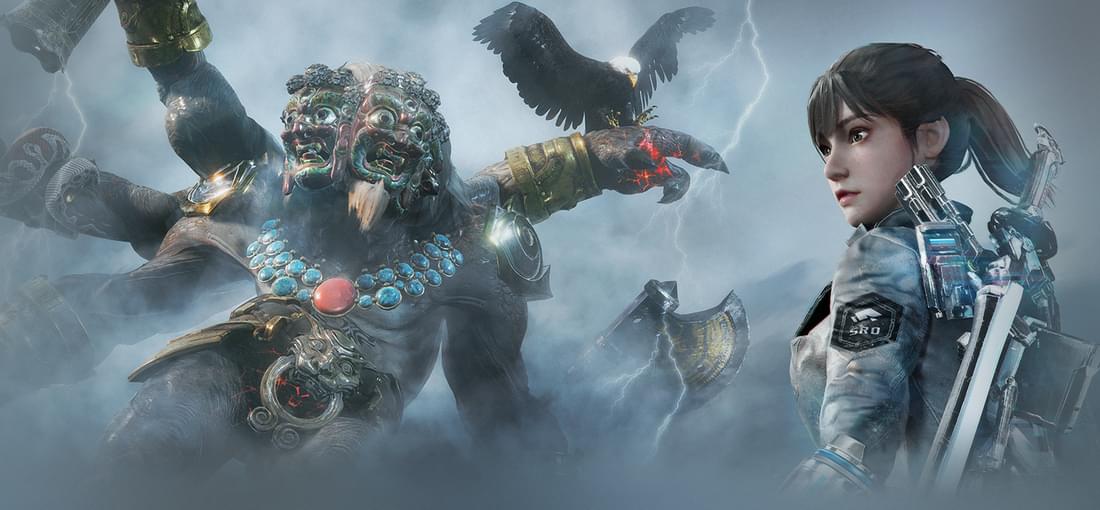
Bright Memory Infinite is an indie first person shooter/brawler hybrid that's an expanded and improved version of one man's passion project. The action is intense and the production values are AAA-quality, but it's noticeably short (meant to be played multiple times at higher difficulties). The premise is you're a government agent for China's supernatural investigation agency called out of your vacation because a frigging black hole opened up over the countryside and medieval warriors and monsters are pouring out. From there things get sillier and sillier. The combat, while first person, hews closer to a Devil May Cry game than a modern shooter. The combat systems have you juggling between using your (up to four) guns and the sword and crazy movement abilities provided by your powered exoskeleton. Shooting guns speeds up power charge for your exosuit, pulling off a perfect block with your exosword instantly reloads your guns. Regular reload times are obnoxiously long so the game really encourages and rewards getting right up in enemies' faces juggling superpunches with autoshotgun blasts to the face. The biggest downside to the game is its length. About 2 hours start-to-finish with the ability to play new game + on higher difficulties with all your unlocked weapons and powers. There's also a mediocre stealth section and a first-person driving/shooting section, but those are both mercifully short. On a personal level, I'm disappointed they no longer have a DMC-style combo gauge in the corner like they did in Episode 1, only an overall rank at the end of a full run. It's like a better verson of modern Shadow Warrior, I just wish there were more of it.
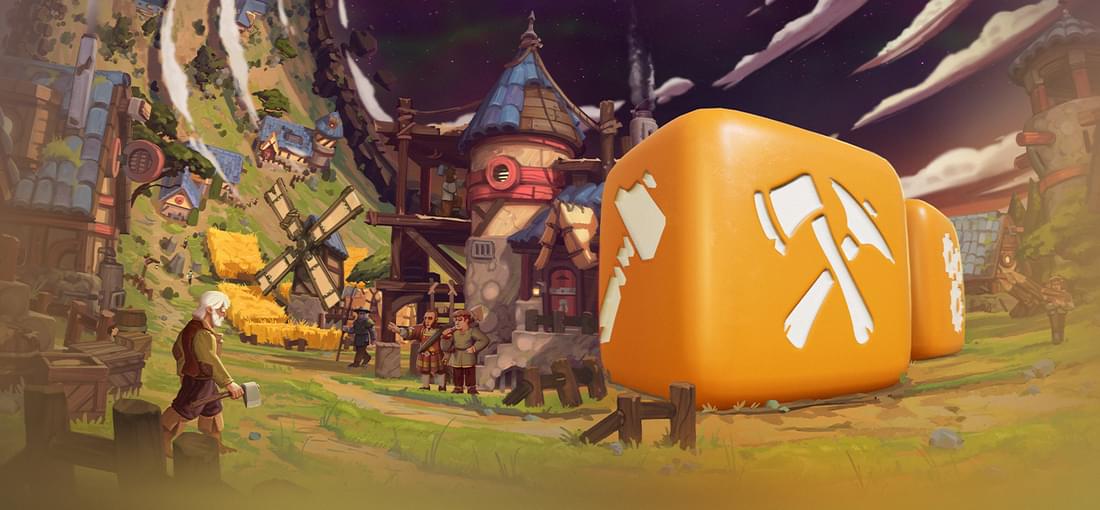
Dice Legacy is an original city-building puzzle hybrid game where you colonize and explore a fantasy ringworld floating through space with a populace represented by dice. The dice faces that come up for your villagers determine the task they're capable of performing, but every re-roll must be paid for later. The main thing about the gameplay is it's meant to be played in non-pausable real-time, (escape menu still pauses) and lacks any kind of active pause in the higher difficulties. Keeping multiple plates spinning while the clock is ticking is an intentional part of the game's loop. Every map is a randomly generated ringworld with scattered resource patches, ruins, and pre-existing settlements; both hostile and neutral. Buildings are buit in a hex-formation with certain buildings having adjacency bonuses. Your dice people must be given food to increase the number of rerolls they can survive. They can also be upgraded into different specialist jobs with different faces for new types of jobs as well as improved skills. There's an entire tech tree to reserach, diplomacy with NPC settlements, and an internal morale system between the different types of dice. Graphics and music are beautiful. My only complaint is the lack of keyboard rebinds. The Alt-Left Click default to lock and unlock dice is very clumsy for me in real-time. It's something truly original and I recommend without hesitation.
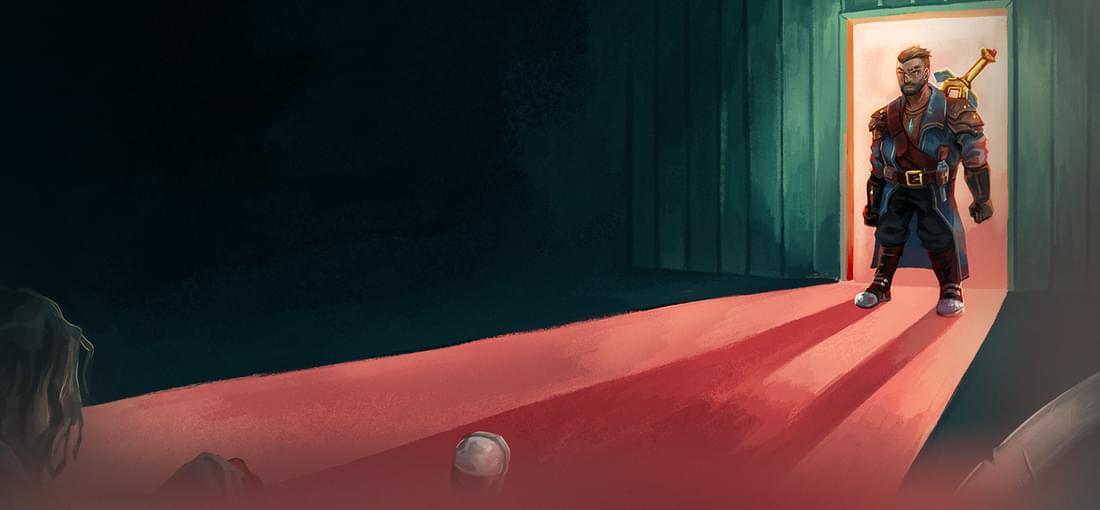
The Magister is a procedurally generated RPG mixed with the logic games of Phoenix Wright. You play a traveling judge for a fantasy steampunk empire investigating the murder of a fellow judge. Like a game of Clue, the city layout and cast of suspects is the same every time, but the details of the murder and the motivations of the suspects changes every time. At first the suspects give you the run-around, but as you finish various RPG quests for them and gain their trust, they start opening up about the details, giving you opportunities to catch them in logical inconsistencies and forcing them to give more info. You have 14 days to figure out the murderer and gather sufficient evidence to make an airtight case. Carrying out the various quests to loosen suspects' lips is done through a variety of minigames like an old Microprose game ala. Pirates! or Sword of the Samurai. Combat is grid-based tactical battles with action cards based on your equipment and skills, negotiation is done by an abstract deck-builder game, stealth takes place in real-time as you avoid vision cones, and so on. Your character is randomly generated each run with skills in either a physical, mental, or cunning skill tree. You also start out with a serious character flaw that limits certain options. Even if you stick to a single skill tree, you will not be able to unlock every skill in a single run. The main downside of the game is the incredibly rough graphics. Especially combat on maps with gorges and other large impassible obstacles where it's hard to tell where exactly the gaps to squeeze through actually are. I hope this is successful enough to release an HD version with cleaned up graphics in the future It's a game that's more than the sum of its parts, something I didn't know I needed in my game collection but now I'm thankful to have it. If you like RPGs, deck-building, and Clue, you'll love The Magister.
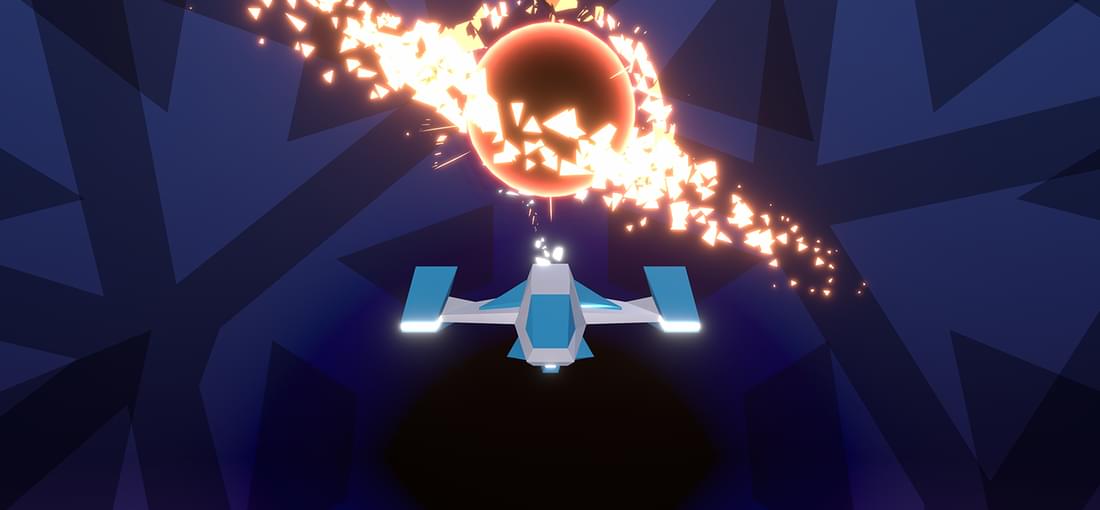
Doki Doki Gravity Drive is a 3rd-person arcade arena shmup that has you fighting off an invasion of dastardly polygons in an abstract solar system orbiting around a deadly black hole. The gameplay feels like a mix of everything from Defender to Tempest to Robotron with modern 3rd-person Shooter controls. Each round has you jump in at the edge of a random solar system. While in open space you have 6 degrees of freedom like Descent, but all the black hole will inevitably draw you to the center and your recharging pool of thrust is not bottomless, so you're safer landing on a planet, where you slide across the 3d surface with your ship and your shots curving around the edges (the game shows you shadows of enemies behind the edge. At any time you can hop off the surface of a planet and thrust to another one, just watch out for that black hole! Enemies are a diverse bunch, from enemy fighters who dogfight you, to swarm-generators, to laser wheels that cause the surface of a planet to pulse with deadly energies until they're destroyed. Enemies drop shield and weapon charges and you can power up your basic shot by several stages, but taking damage downgrades your weapon. You also have a spinning death-blossom attack with auto-charging ammo. And finally you have a limited supply of panic bombs that clear the surface of a planet. Graphics are Tron-style polygons with lots of bloom and it runs like butter. The 80s chiptune music is excellent. It's a Unity engine game. This feels like a lost 5th game by Vid Kidz. I'm very happy with it and heartily recommend it to lovers of coin-op arcade games of the 80s
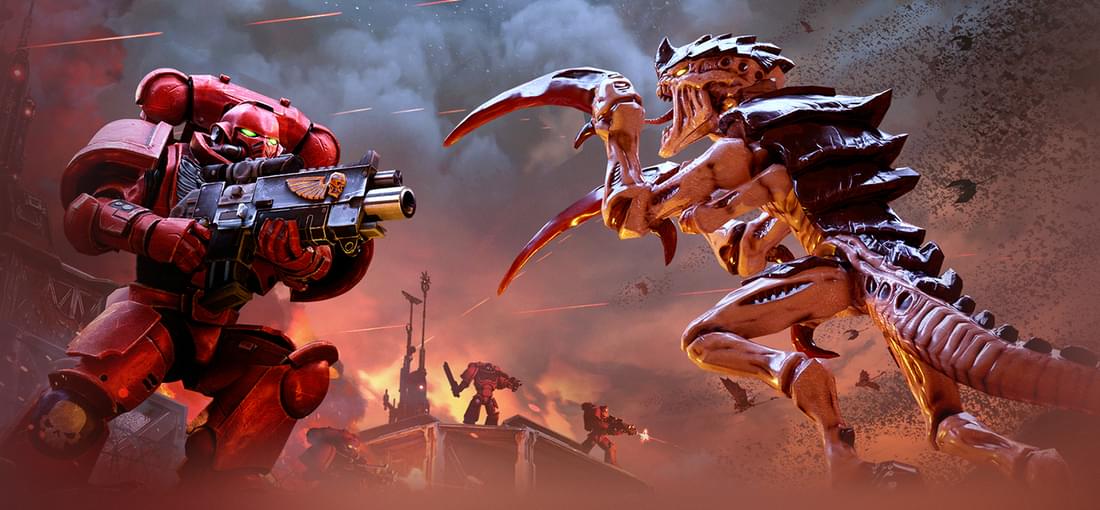
Battlesector is a turn-based square-grid tactics game where you control squads of Warhammer 40k Space Marines from the Blood Angels chapter verses swarms of Tyranids from Hive Fleet Leviathan in what was supposed to be a cleanup training exercise gone horribly wrong. Units have separate pools of movement points and action points they can use in granular fashion, so a unit can move a short distance, use their action point to shoot, then retreat with their remaining movement points. Getting kills generates up to 100 "momentum" points for each unit individually. Momentum passively increases your critical hit chance, and if you hit 100 you can spend it on an extra action that round, or activate a powered up version of a skill. If you hang back and overwatch or otherwise leave action points unused, your momentum drains. These systems reward more aggressive/suicidal gameplay that fits a setting about lunatic fascist theocrats swinging chainsaws at each other. The closest analogue to this game is Sanctus Reach (SR), so here's a quick comparison. In terms of production value Battlesector (BS) is better looking and sounding than SR, with lots of lovingly voice-acted lore. Scale is smaller than SR, the largest vehicle you'll field is a predator tank; no Land Raiders and certainly no Gorkanauts. BS doesn't have a morale system like SR, using momentum to encourage aggressiveness instead. Maps are smaller and there is no random map generator yet, at launch BS has 20 campaign missions and 8 premade skirmish maps. BS maps don't have a turn limit like SR, but neither do they end when you finish all the objectives, you will need to finish off all remaining tyranids to win. IMO, Battlesector is an above-average game at launch, and if the studio's previous record with Battlestar Galactica Deadlock is any indication, it will become something special with patches and DLCs.